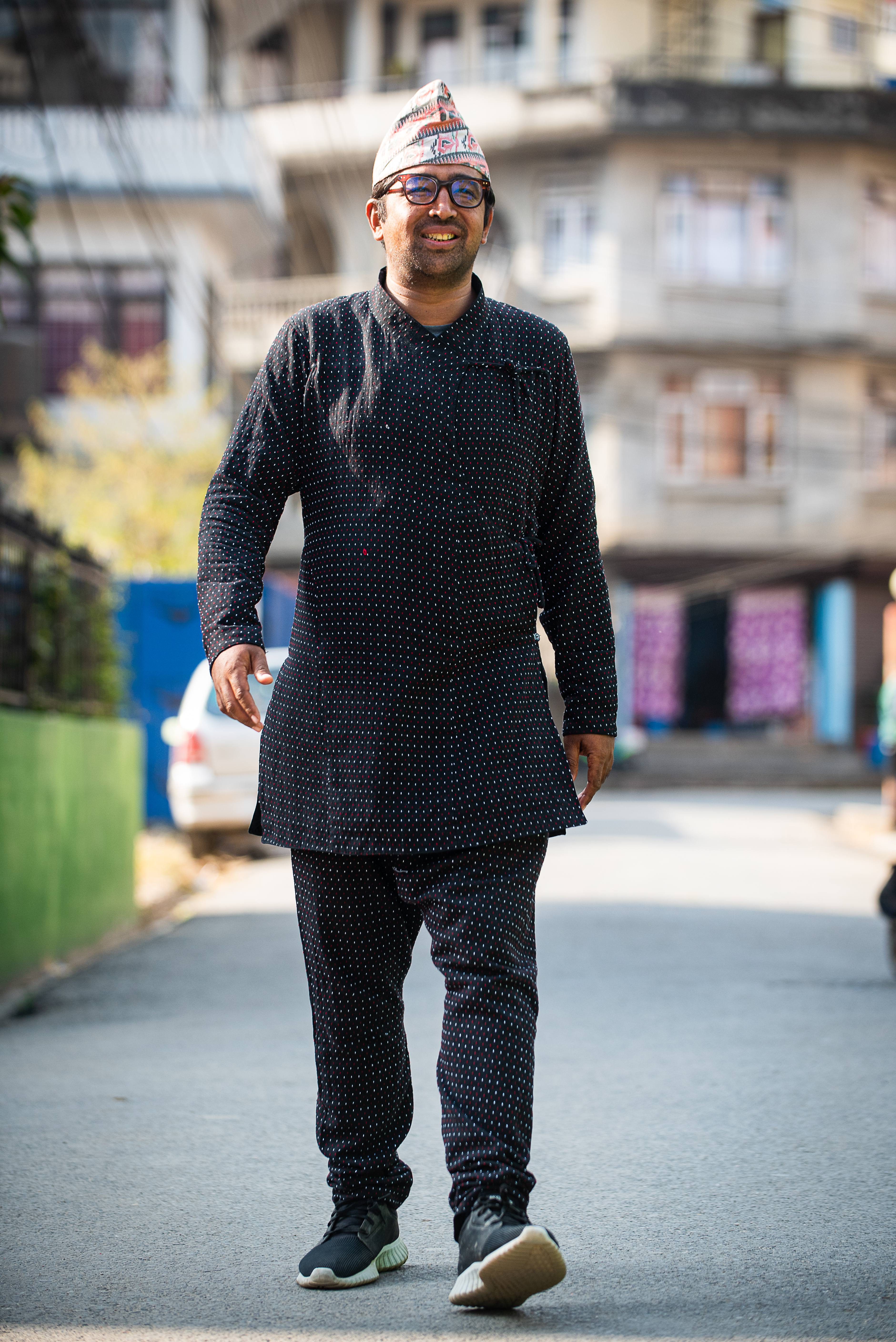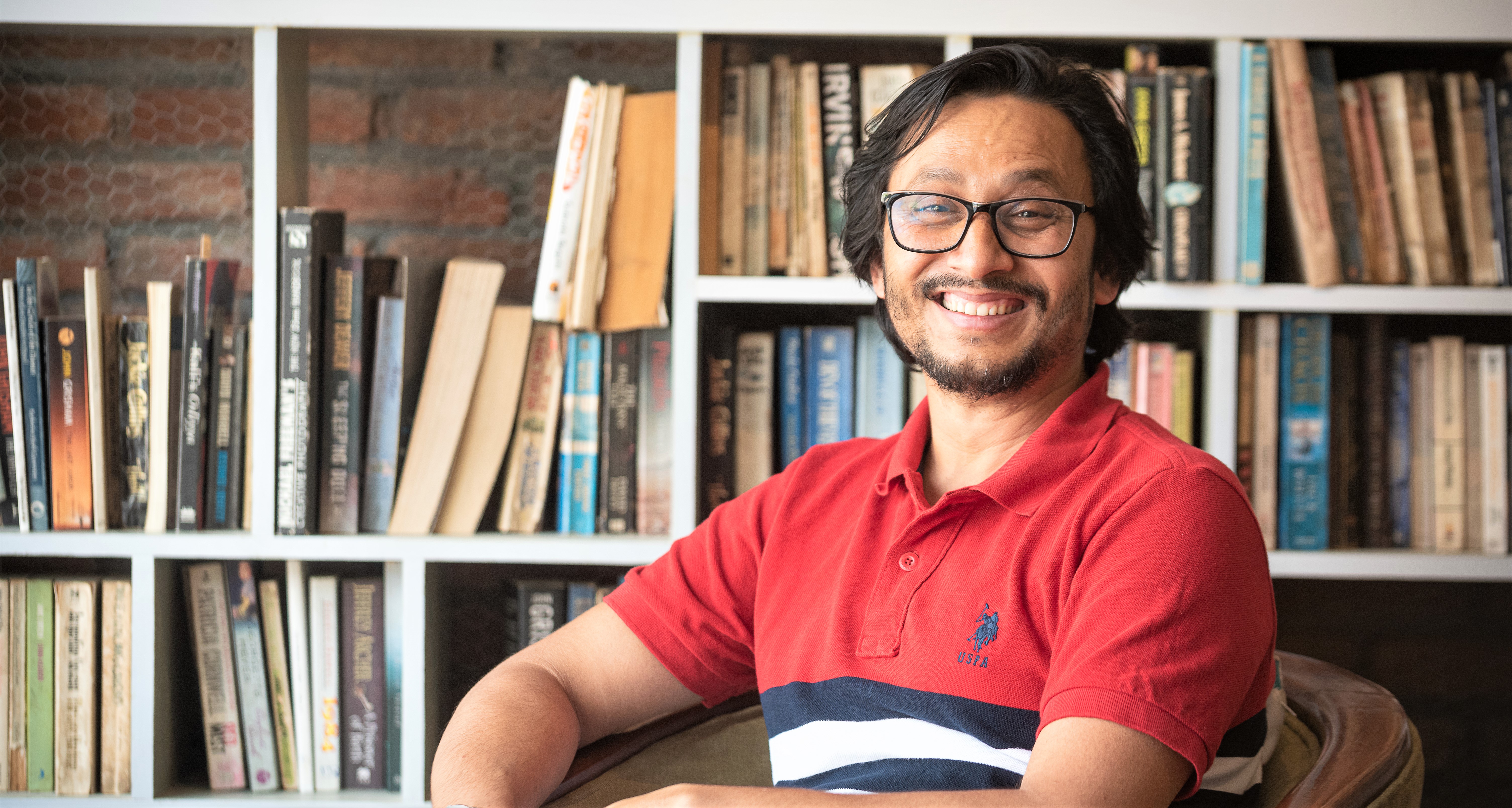My Vision for Nepal | Secure every kid’s access to basic needs

Secure every kid’s access to basic needs
Three ways to realize the vision:
1) Make the government take ownership of every helpless child and family.
2) Get the community to support children deprived of basic needs.
3) Better equip government schools in terms of manpower and material.
As a social worker, I am often asked about the definition of social work. I say it is a collective effort in/for someone’s life. The scientific definition mainly deals with long-term solutions, which are necessary. But, often, working on the ground offers you a different explanation. Every year, I travel to the Chepang community of different places and provide them with stationery materials and other items of basic needs. Your focus is short-term, people say, pencils and notebooks won’t change their life much. But I believe the same pencils and notebooks will, one day, change their life.
Everyone has his or her limits. I have no power to employ somebody, so I do what I can on my own. There are people and authorities who could provide skills and employment. They should work on that part. We, working in this field, are the stakeholders with different expertise and we should contribute whatever we can, wherever we are. That’s why I say it is a collective effort. I also want other people, mainly youths, to be involved in social work because together we can make a difference. You don’t have to give all your time but even volunteering sometimes would help a lot. My working mechanism is informal, based on practical philanthropy that entails getting small contributions from lots of folks.
Coming from a family keen on social services, you can say I was born into this field. I formally started working for children in 2004. I dream of a Nepal where no child is deprived of food, shelter, and clothing. Along with these three basic needs, they should also get quality education so that they can understand, advocate for, and enjoy their rights from the beginning. Governmental schools are accessible and affordable places for children from all backgrounds. What we need right now is to better equip them in terms of manpower and material, so that no child is left behind in the race for quality education. Right now, you will get free education there, but no free notebooks and pencils, so, again, small contributions matter.
If we all try, there is nothing we cannot do. The government has to take ownership of children deprived of basic needs. Aside from food, shelter, and clothing, children need love, affection, care, and support. Their family is as important. I don’t want children to move to the streets, so I am working to settle them where they belong. To make this happen, the government also has to take care of those helpless families.
Also read: Hima Bista: Put girls and women at the center stage of each sector
The community is everyone’s guardian and it collectively helps those in need, but it often ignores poor families. With that, children from these families also get ignored, which deprives them of their basic needs and rights. So the community should support helpless children in the locality. This initiation would help the government and other stakeholders as well. You don’t need to contribute cash, just a kind offering works on many occasions. Helpless families and their children need community help to sustain themselves.
Government, police, and community have a wrong perception of street children. I say so based on my experience. I was once chased by a khukuri-wielding street kid who had been told by one of my neighbors that I was making money by exploiting street children. I was also taken into police custody under suspicion of being a gang leader of street children involved in crimes. Police had noticed me interacting with street children. These activities result from a lack of knowledge on the part of the police, the authorities, and the community. If they can play a part in guaranteeing the wellbeing of these children, these kinds of problems will go away.
There are around 80,000 NGOs and INGOs in Nepal. If each supports only one child, 80,000 children will live a sustainable life. Again, with collective effort, we can make a difference. But the organizations don’t seem interested.
I don’t know why everyone has to have big dreams. Try small dreams too, as they are easy to achieve and small things are the ones that truly matter, as you realize one day. I started with a small dream of helping children, and I am fully satisfied with what I am doing right now.
Lastly, kids are like clay and we need to mold them into proper shape. So please help the needy ones by any means possible.

Quick Questions:
1. Why are you into social work?
I started it as a volunteer and serving the helpless, especially kids, ultimately became my addiction. So, in a way, all the children out there motivate me to do what I am doing today.
2. What is the biggest hurdle for a social worker in Nepal?
You encounter many problems in this field, but lack of funds is always the primary one.
3. One quote you live by.
“Together we are stronger.”
related news
My Vision for Nepal | See Nepali women’s football team lift SAFF championship
April 18, 2022, 9:43 p.m.
My Vision for Nepal | A top global tourist destination
April 11, 2022, 6:19 p.m.
My Vision for Nepal | A clean country built on sustainable and socially inclusive waste management
April 5, 2022, 12:42 a.m.
My Vision for Nepal | Internationally acclaimed Nepali movies
March 28, 2022, 8:02 p.m.
My Vision for Nepal | Equal respect for all genders: male, female and queer
March 21, 2022, 7:11 p.m.
My Vision for Nepal | Economic growth and socio-economic development
March 14, 2022, 2:29 p.m.
My Vision for Nepal | Zero trafficking of Nepali people
March 7, 2022, 5:13 p.m.
My Vision for Nepal | A healthy, educated, and hospitable country
Feb. 28, 2022, 7:47 p.m.











Comments